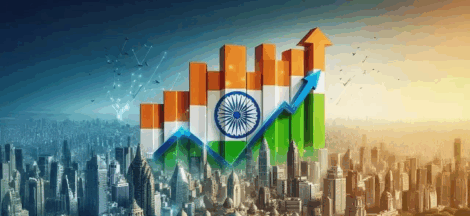NEW DELHI: The online portal to take feedback on sanitary and phytosanitary measures and technical barriers to trade being faced by exporters will be rolled out in the next two to three months which will help government provide focussed attention for addressing them, a senior official said Friday.
The portal will collect from exporters instances where they find the process of conformity assessment with the standards of the markets where they want to export to be very difficult and its burden too high for resolution by the government, additional secretary in the department of commerce Rajesh Agrawal said.
“Sometimes resolution can come through engagement with a foreign country and sometimes solutions can come through better enforcement within our own country,” he added. Better local standards will improve the quality of exports and meet the standards in the overseas markets.
A taskforce has been set up within the department that will look at the resolution strategy. Once the resolution strategy is finalised the portal will also be used to monitor all the efforts done to resolve that. Non-trade issues take years to get resolved. If there is an online mechanism to track them and the efforts made to resolve them then the process will become smoother and more effective.
Key Indian exports that routinely face high technical and safety barriers include chillies, tea, basmati rice, milk, poultry, bovine meat, fish, chemical products to the EU; sesame seed, black tiger shrimps, medicines, apparel to Japan; food, meat, fish, dairy, industrial products to China; shrimps to the US; and bovine meat to South Korea.
Most non-tariff measures (NTMs) are domestic rules created by countries to protect human, animal or plant health and environment. NTM may be technical measures like regulations, standards, testing, certification, pre-shipment inspection or non-technical measures like quotas, import licensing, subsidies, and government procurement restrictions. When NTMs become arbitrary, beyond scientific justification, they create hurdles for trade and are called NTBs (non-tariff barriers).
As tariffs have come down the countries have started using technical regulations to regulate trade. “Non tariff barriers have higher costs than tariffs. To meet non tariff measures the additional cost that is required to improve quality is much more than commercial tariffs that would have to be paid,” Agrawal said.
Every year across the world around 3,000 notifications regarding standards are issued. Though most of them come from developed countries even developing and least developed countries use them. These standards are largely used for food security.
“Many of them will be our export markets and our industry needs to get aligned to it. We need to standardise more, we need to be coming out with proper regulations and be very scientific in our production of both agriculture as well as industrial products.. Basically the focus is on standardisation and safety (in world trade).. We are also doing it for our domestic and international market.,” the official said.
India is also aligning its standards with world standards. It has 330 notifications dealing with sanitary and phytosanitary standards to protect plant and animal health and 434 notifications regarding technical barriers to trade. “More than half of all regulations have come in the last 4 years. Quality regulations in non-food areas have actually been the focus in the last 5 years,” Agrawal said..
Source: The Financial Express




 INDIA Bloc CMs Plan to Corner Centre on Funds Squeeze
INDIA Bloc CMs Plan to Corner Centre on Funds Squeeze 